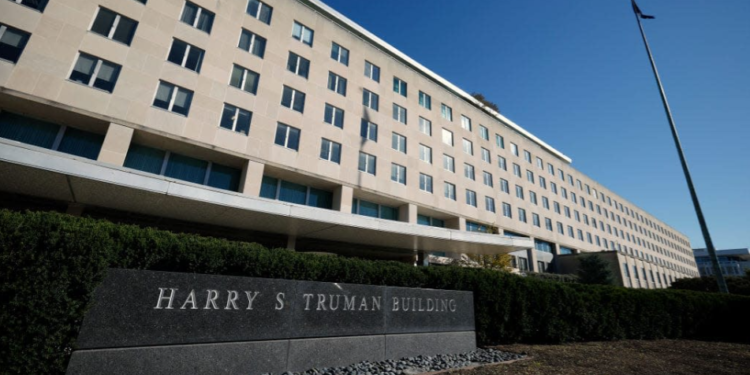Jan 29, 2025 Story by: Publisher
President Donald Trump’s executive order aimed at eliminating diversity, equity, and inclusion (DEI) programs has sparked confusion within federal agencies about the observance of Black History Month (BHM). A recent report by the Wall Street Journal revealed that officials at the U.S. Department of State raised questions regarding whether they could celebrate Black History Month, which begins on Saturday, following Trump’s directive to dismantle DEI programs and reverse long-standing policies addressing racial and gender discrimination.
In response to the inquiry, the State Department’s public affairs office issued new guidance, advising officials to recognize the “valuable contribution of individual Americans throughout U.S. history” while aligning their public communications with the directive to eliminate DEI programs. The guidance further clarified that there would be “no restrictions” on content or events related to accessibility or people with disabilities, according to the Wall Street Journal.
However, the report also cited a State Department official who interpreted the order as a prohibition on public-facing messages or events about Black History Month. The official told the WSJ, “That’s how we’re reading it,” and added, “The diplomats I spoke to today, with decades of experience, couldn’t remember a time we failed” to observe Black History Month.
Since its inception in 1926 as Negro History Week, Black History Month has been officially recognized by every U.S. president since 1976, including Trump during his first term. The observance was created by Carter G. Woodson, the “Father of Black History,” and Jesse E. Moorland, founders of the Association for the Study of Negro Life and History. The initial goal was to educate the public about the vital role Black Americans have played in U.S. history. Over time, the observance grew in popularity, particularly on college campuses, and evolved into Black History Month during the Civil Rights Movement.
In a historic moment, President Gerald Ford issued a public statement in 1976 urging Americans to “seize the opportunity to honor the too-often neglected accomplishments of Black Americans in every area of endeavor throughout our history.”
But now, under the Trump administration, this nearly 50-year-old tradition may be in jeopardy if the interpretation of the executive order stands. TheGrio previously inquired with the White House about whether Black History Month would continue to be observed, but did not receive an official response. However, a White House official acknowledged Trump’s prior recognition of Black History Month and cited misinformation circulating on social media about public concerns.
During his first term, President Trump issued annual proclamations recognizing “National African American History Month” and hosted official White House events that celebrated the month and honored the contributions of Black Americans. At a 2019 White House reception, Trump stated, “From the earliest days of this nation, African-American leaders, pioneers, and visionaries have uplifted and inspired our country in art, science, literature, law, film, politics, business, and every arena of national life. The depth and glory of these contributions are beyond measure. You know it, I know it, and everybody knows it.”
He also emphasized the importance of remembering the “heroic legacy of African Americans who bravely battled oppression to usher in a bright new dawn of freedom.” Source: Aol

















